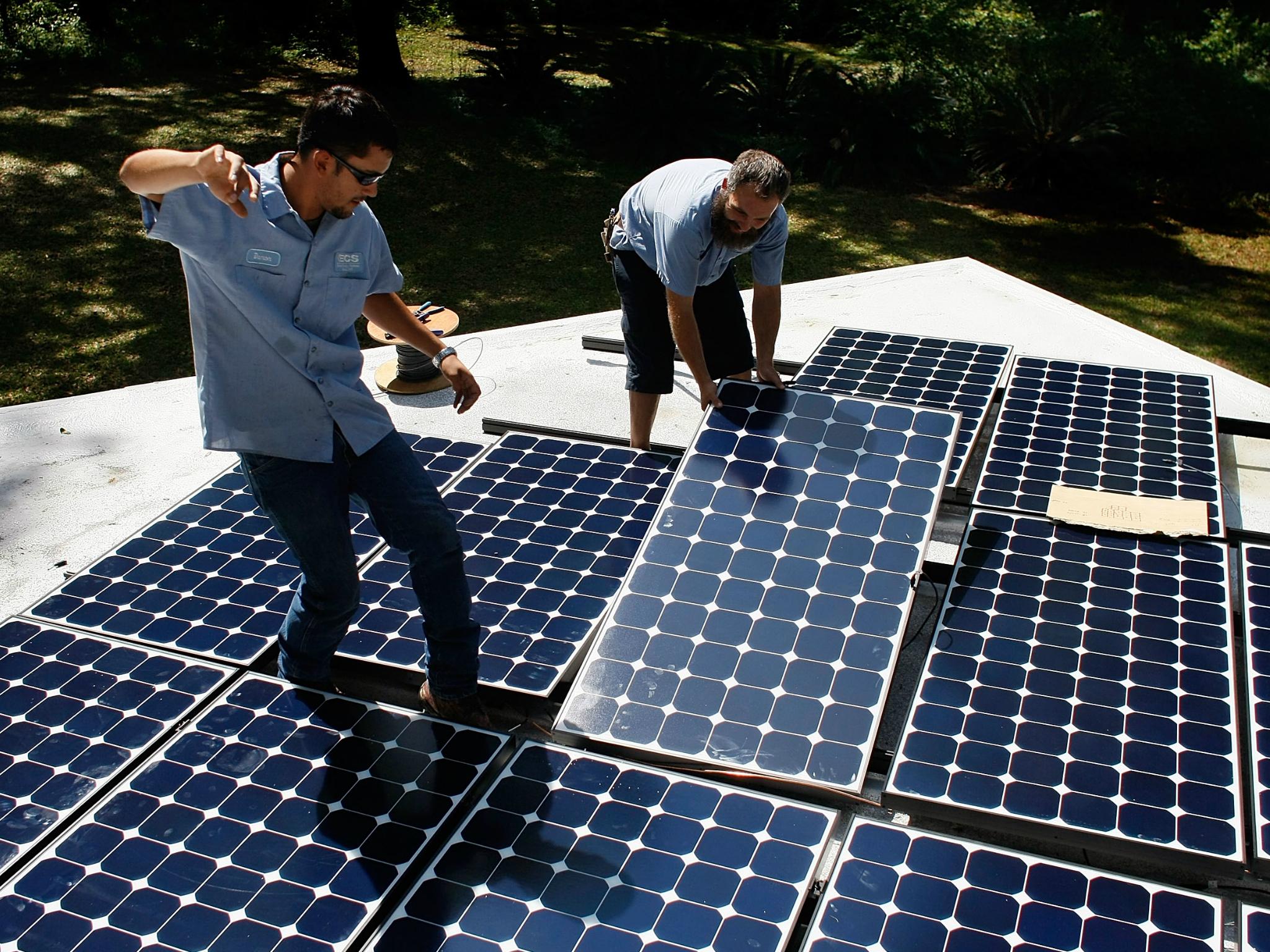Growth in independent renewable energy projects slumps as government support falls
Small-scale renewable projects account for almost 10 per cent of the UK’s energy, but government support is coming to an end

Your support helps us to tell the story
From reproductive rights to climate change to Big Tech, The Independent is on the ground when the story is developing. Whether it's investigating the financials of Elon Musk's pro-Trump PAC or producing our latest documentary, 'The A Word', which shines a light on the American women fighting for reproductive rights, we know how important it is to parse out the facts from the messaging.
At such a critical moment in US history, we need reporters on the ground. Your donation allows us to keep sending journalists to speak to both sides of the story.
The Independent is trusted by Americans across the entire political spectrum. And unlike many other quality news outlets, we choose not to lock Americans out of our reporting and analysis with paywalls. We believe quality journalism should be available to everyone, paid for by those who can afford it.
Your support makes all the difference.Growth in independent renewable energy projects has slumped to its lowest level in years as government subsidies have fallen away.
Smaller-scale projects owned by developers, farmers, landowners and communities generate a total of 9.25 per cent of the UK’s energy mix – a figure which has doubled over the last five years and equates to enough energy to power 8.4 million homes.
At the same time, large scale renewable projects mean the UK now takes a third of the electricity it uses from renewable sources.
The sector’s growth meant that 2017 was the UK’s greenest year on record, with several days during which the National Grid was not using any coal power for the first time since the industrial revolution.
But as financial support for renewables has been cut, the number of new projects going ahead is falling amid concerns over their financial viability.
According to a new report by SmartestEnergy, a total of £227m was spent during 2017 on independent renewable energy projects.
The figure represents a fall of almost 20 per cent from the £280m spent in 2016, and is down more than 45 per cent from the peak of £418m invested in 2014.
The decline follows the government’s decision to end feed-in tariffs – a scheme designed to support small-scale take-up of renewable energy generation.
The scheme meant homeowners, small businesses or communities considering building a renewable energy source such as a solar array, wind turbine, or hydro technology, could expect payments for electricity generation from energy companies.
The end of feed-in tariffs is no surprise to the sector, but last year’s Autumn statement confirmed that there will be no new support until at least 2025, with the feed-in tariff scheme due to close in March 2019, and for which no review date has been set.
In 2017 the government also decided to close the Renewable Obligation Scheme to new projects – the scheme encourages renewable energy generation by forcing energy suppliers to source a proportion of their electricity from renewable sources.
Iain Robertson, Vice President of Renewables at SmartestEnergy, said: “The reduction in subsidies has inevitably slowed growth in the independent generation sector but these latest figures underline the significant role energy entrepreneurs continue to play as the UK shifts to a decentralised, decarbonised and digitised energy system.”
The report says the changing financial environment means the installation of new renewable energy projects capable of operating subsidy-free “will be the exception rather than the norm for some time to come”.
Despite the slowdown in growth, the number of future projects is expected to pick up again, Mr Robertson says.
In addition, a recent report from Aurora Energy Research predicted an enormous 18GW of subsidy-free projects are likely to be built by 2030, amid falling costs for solar and wind technology.
The report forecast that improvements in battery storage of electricity could unlock £20bn of investment in the UK over the next 12 years.
Dr Jonathan Marshall, head of analysis at the Energy and Climate Intelligence Unit, told The Independent the continued growth of independent renewables, despite worries over subsidies, were a good indicator of the health of the renewable sector.
He said: “While government support for renewable energy waned during 2017, growing independent capacity shows that the industry continues to press ahead. Drastic falls in the cost of electricity from wind turbines and solar panels in recent years mean that the long-term dream of ‘subsidy free’ renewables is now within reach. The UK has won plaudits for backing offshore wind to the point where the most recent auction smashed expectations for how low costs could go, yet current policies prevent building more onshore wind and solar capacity, technologies that are among the cheapest ways of generating electricity in the UK.
“Following the recent announcement that the UK carbon targets could be tightened later this year, measures that curtail the generation of low-carbon power seem out of step with our long term goals. Without a cheap and clean power supply, plans to cut carbon from heating and transport are likely to be harder to achieve, and risk undermining claims of climate leadership that British ministers have been making on both the domestic and global stage.”
A Department for Business, Energy and Industrial Strategy spokesperson said: “With government putting clean growth at the heart of our Industrial Strategy and support - including £100m of funding- the renewable energy sector is thriving and powering our nation. We are leading the world in reducing our emissions and last year was our greenest ever and, as this report shows, the industry continues to grow.
“We are considering how we support small scale renewables beyond 2019 and will set out our approach in due course.”
Join our commenting forum
Join thought-provoking conversations, follow other Independent readers and see their replies
Comments